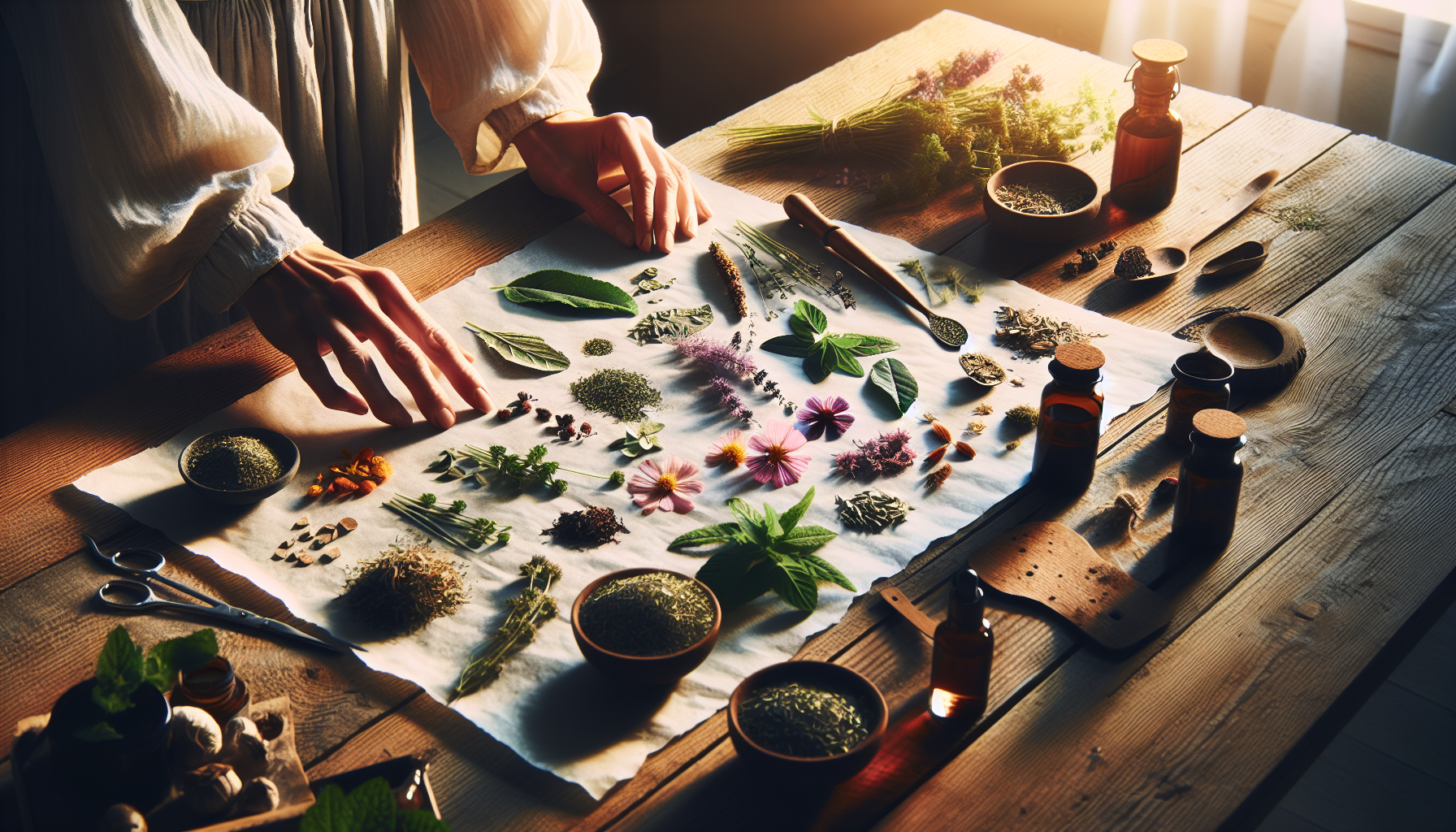The Science Behind Clay Masks: Unveiling the Secrets of Natural Skincare

The use of clay in beauty and healing rituals can be traced back to ancient civilizations. The Egyptians, for example, utilized clay not only for its cosmetic properties but also for medicinal purposes, as documented in historical texts and archaeological findings. Similarly, indigenous peoples of the Americas recognized the skin-healing properties of clay, integrating it into their beauty practices. This historical context underscores clay's longstanding reputation as a skincare staple, revered for its natural properties and effectiveness. The ancient Greeks, Romans, and even cultures in Asia have also embraced clay for its therapeutic qualities, illustrating its universal appeal throughout history.
Understanding the Composition of Clay
Different types of clay possess unique mineral compositions that contribute to their distinct benefits in skincare. Here are some of the most commonly used clays and their characteristics: 1. **Bentonite Clay**: Composed primarily of montmorillonite, bentonite clay is rich in minerals like sodium and potassium. It is celebrated for its oil-absorbing properties, making it particularly beneficial for oily and acne-prone skin. By drawing out impurities and excess sebum, bentonite clay helps to clear pores and reduce the likelihood of breakouts. 2. **Kaolin Clay**: Known for its gentle nature, kaolin clay is ideal for sensitive skin types. It provides mild exfoliation, helping to remove dead skin cells and soothe irritation. Its calming properties make it a popular choice for individuals with delicate or reactive skin. 3. **Rhassoul Clay**: Originating from Morocco, rhassoul clay is rich in silica and magnesium. This unique composition enhances skin elasticity and reduces dryness, making it particularly suitable for mature skin types. Rhassoul clay is also known for its ability to improve skin texture and tone. 4. **French Green Clay**: Infused with iron oxides and minerals, French green clay excels at detoxifying the skin. It improves circulation and helps alleviate inflammation, making it an excellent option for problematic skin. Its absorbent nature draws out impurities while providing essential nutrients.
Benefits of Clay Masks for Different Skin Types
The versatility of clay masks allows them to cater to a variety of skin concerns, with specific benefits tailored to different skin types: - **Oily Skin**: Clay masks are particularly effective for oily skin as they absorb excess sebum and unclog pores. Regular use can lead to a clearer complexion, reducing the frequency of breakouts and promoting a more balanced skin surface. - **Dry Skin**: Contrary to the belief that clay masks may exacerbate dryness, certain types, such as kaolin, can provide gentle exfoliation and hydration. They promote a smoother texture while retaining essential moisture, making them suitable for dry skin types. - **Combination Skin**: For individuals with combination skin, clay masks can be applied selectively to address specific concerns. Oily zones can benefit from the oil-absorbing properties of certain clays, while drier areas can be nourished with gentler formulations. - **Sensitive Skin**: Soothing clays like kaolin and rhassoul can calm redness and irritation, providing relief without the addition of harsh chemicals. These masks help maintain skin health for those with sensitive or reactive skin.
The Science Validating Clay's Effectiveness
Recent scientific studies have begun to validate the claims surrounding the benefits of clay masks. Research published in the *Journal of Cosmetic Dermatology* found that facial masks containing bentonite significantly reduced acne and improved the overall appearance of the skin over a four-week period. The study highlighted the clay's ability to absorb toxins, bacteria, and other impurities, reinforcing the notion that clay masks provide tangible benefits. Moreover, the anti-inflammatory properties of specific clays can help alleviate redness and irritation, making them an invaluable addition to the skincare regimen for individuals with sensitive skin. These scientific findings bolster the traditional uses of clay, offering modern consumers a deeper understanding of its efficacy.
Clay masks are not merely a passing trend; they embody the power of natural ingredients, supported by centuries of use and an increasing body of scientific evidence. With their historical significance in beauty rituals and proven benefits across various skin types, clay masks provide a harmonious blend of tradition and modern science. As consumers continue to seek natural and effective skincare solutions, understanding the science behind clay masks empowers individuals to make informed choices in their beauty routines. Whether you have oily, dry, combination, or sensitive skin, there is likely a clay mask formulation that can enhance your skincare journey, revealing the true potential of your complexion. By embracing the timeless wisdom of clay masks, individuals can achieve healthier, more radiant skin while honoring nature's most effective remedies.
Cosmetic Chemist
Johnson & Johnson, L'Oréal, Estée Lauder
Core Responsibilities
Formulate and develop new cosmetic products, including clay masks, ensuring they meet safety and efficacy standards.
Conduct stability and compatibility testing of formulations to ensure product quality over time.
Collaborate with marketing teams to understand consumer needs and translate them into innovative product features.
Required Skills
Strong background in chemistry, particularly organic and analytical chemistry.
Experience with natural ingredients and their properties, particularly in skincare formulations.
Familiarity with regulatory standards for cosmetic products.
Skincare Product Development Specialist
Neutrogena, The Body Shop, Burt's Bees
Core Responsibilities
Research and analyze market trends to identify opportunities for new skincare products, focusing on natural ingredients like clay.
Oversee the development process from concept to launch, ensuring product alignment with brand values and sustainability goals.
Conduct sensory evaluations and consumer testing to refine product formulations.
Required Skills
Knowledge of skin biology and the impact of ingredients on different skin types.
Project management skills to coordinate cross-functional teams.
Strong analytical skills to interpret consumer feedback and sales data.
Natural Skincare Brand Manager
Tata Harper, Herbivore Botanicals, Aesop
Core Responsibilities
Develop and implement marketing strategies for natural skincare lines, emphasizing the benefits of ingredients like clay.
Analyze sales data and consumer insights to drive brand growth and product positioning.
Coordinate promotional campaigns across various channels, including social media and retail partnerships.
Required Skills
Experience in brand management or marketing within the beauty or cosmetics industry.
Understanding of consumer behavior and trends in natural skincare.
Excellent communication and leadership skills.
Regulatory Affairs Specialist in Cosmetics
Procter & Gamble, Unilever, Coty Inc.
Core Responsibilities
Ensure that cosmetic products, including clay masks, comply with local and international regulations before market entry.
Prepare and submit documentation for product registrations and labeling requirements.
Monitor changes in legislation affecting cosmetic products and communicate updates to stakeholders.
Required Skills
Knowledge of cosmetic regulations, safety assessments, and ingredient restrictions.
Strong attention to detail and organizational skills.
Ability to communicate complex regulatory information to non-specialist teams.
Sustainability Consultant for Beauty Brands
Kiehl's, Aveda, Lush Cosmetics
Core Responsibilities
Advise beauty companies on sustainable sourcing and production practices, focusing on natural ingredients like clay.
Conduct life cycle assessments to evaluate the environmental impact of skincare products.
Develop strategies for reducing waste and improving eco-friendliness in product packaging and formulation.
Required Skills
Background in environmental science or sustainability studies, with a focus on the beauty industry.
Strong analytical and problem-solving skills to create actionable sustainability plans.
Excellent communication skills to collaborate with various stakeholders.


